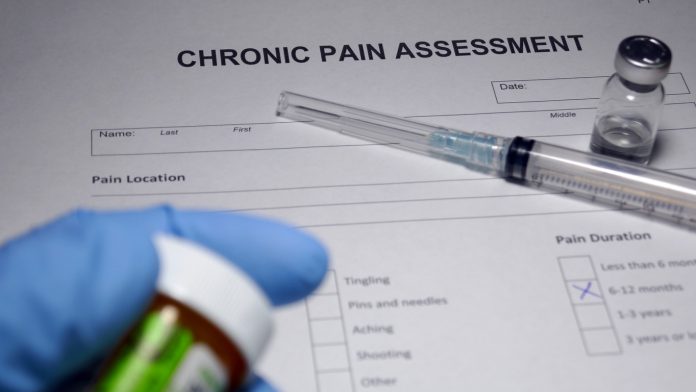Chronic pain is a complex condition with far-reaching consequences. This review explores the latest research on factors contributing to its development and the potential of early interventions to prevent its onset
Chronic pain is common, affecting approximately 20% of the population across the life span- from pediatric to seniors- sufficiently to have an impact upon their daily activities of living, and costly as reflected by the Canadian experience of $39 Billion annual costs in 2019.
The challenge of chronic pain
Research has focused on both management of chronic pain, and on reducing the transition from acute to chronic pain. For example, reviews have highlighted the role of maladaptive coping, fear avoidance behaviors, psychiatric comorbidity, nonorganic signs, and low general health as risk factors for persistent back pain;(1) however, a recent observational study of 98 people with acute low back pain and biobank data from 2,624 acute back pain patients has suggested use of non-steroidal anti-inflammatory drugs (NSAIDs) may also contribute to the development of chronic back pain.(2)
The authors hypothesized that the acute inflammatory response to acute injury may provide protection against chronic pain. Further, an international cohort study of 14,831 patients undergoing non-cardiac surgery found those who received NSAIDs 1-7 days preoperatively vs. not were 1.6 times more likely to develop persistent incisional pain.(3)
Opioids and chronic pain
These findings are relevant to opioids, as NSAIDs are increasingly used in their place to avoid risks of addiction, overdose and death. However, observational studies are vulnerable to confounding and randomized controlled trials are required to establish causation. The recently published OPAL trial randomized 347 patients with acute low back and neck pain to an opioid (oxycodone-naloxone) or placebo and followed them for 1 year.(4) They found that patients randomized to opioids reported greater pain at 1 year vs those randomized to placebo, and more patients randomized to opioids reported ongoing pain at 1 year; adverse events were also more common with opioids vs placebo.
The use of opioids to manage acute pain has been advocated by some to reduce the risk of progressing to chronic pain; however, this paradigm was developed as a marketing strategy by opioid manufacturers without compelling supporting evidence.(5)
These findings highlight the complexity of the transition from acute to chronic pain and the need for further research in this area. Compassionate care of acute pain is critical, and the approach taken may affect the likelihood of developing chronic symptoms. The role of opioids for acute pain is increasingly being scrutinized, and although opioids may well have an important role in some complaints, there are likely to be more effective and/or safer alternatives for many types of acute pain.
The need for further research
The role of a robust inflammatory response in the acute phase of injury in preventing chronic pain remains uncertain and additional rigorously conducted randomized trials, with sufficient follow-up, are required to inform this knowledge gap.
Patients and their healthcare providers require evidence of the benefits and harms of opioids and non-opioid alternatives to manage acute pain, including the impact on the development of chronic pain.
References
- Chou R, Shekelle P. Will This Patient Develop Persistent Disabling Low Back Pain? JAMA. 2010;303(13):1295–1302.
- Parisien M, Lima LV, Dagostino C, et al. Acute inflammatory response via neutrophil activation protects against the development of chronic pain. Sci Transl Med. 2022; 14(644): eabj9954.
- Khan JS, Sessler DI, Chan MTV, et al. Persistent Incisional Pain after Noncardiac Surgery: An International Prospective Cohort Study. Anesthesiology. 2021; 135(4): 711-723.
- Jones CMP, Day RO, Koes BW, et al. Opioid analgesia for acute low back pain and neck pain (the OPAL trial): a randomised placebo-controlled trial. Lancet. 2023; 402(10398): 304-312.
- Sismondo S, Bernisson M. How an opioid giant deployed a playbook for moulding doctors’ minds. BMJ. 2024; 385: q1208.








